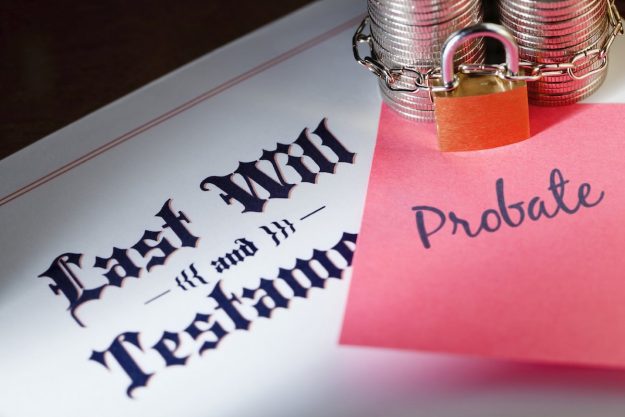Rod Genders is a senior Australian lawyer specialising in Wills and Estate Planning, Probate and Estate Administration, Trusts and Guardianship and Inheritance Claims and Contested Estates in South Australia. His boutique specialist law firm, which was founded on 1848, is one of the oldest and most respected in Australia. Rod is an international author and speaker. Rod is the 3rd generation of Genders in the law and has been practising specialised law since the mid 80’s. He has acted as counsel or consultant to in excess of 50 other firms around Australia. Rod holds the SA state record for the highest ever personal injury award of damages, and has been involved in several of the largest personal injury claims in Australian legal history. For over 10 years he served on the Council of the Law Society of South Australia and is a senior member of its Succession Law Committee. Rod was a founding committee member of the South Australian branch of the London-based Society of Trusts and Estate Practitioners (STEP) for 8 years and was the founding Chair of the international STEP Digital Assets Special Interest Group. For over 25 years Rod has chaired a private committee enquiring into the affairs of protected persons. He is a member of the Law Council of Australia, and a member of its Succession and Elder Law Committee.
Joint accounts with other people are a common method for ageing persons seeking help with money management, but this can cause problems.
What is Joint Tenancy
Joint Tenancy is used often by couples as a means of owning shared assets. There are some good reasons to do this, but there are also some drawbacks.
Joint accounts are often referred to as a “poor man’s Will” because they allow an individual to give assets to another upon death without going through the probate process. Some people have the perception from hearing horror stories that probate will consume the entire estate.
Your ‘Will’ is a legal document that tells the world what you want to happen to your estate after you’re gone.
Your ‘estate’ is everything you own or control. It can include real estate, bank accounts, investments, shares, insurances, superannuation, vehicles, personal possessions and all manner of other assets.
It can also include intangible assets like goodwill, royalties, intellectual property and various legal rights.
Next week marks the beginning of World Alzheimer’s Month and Dementia Awareness Month. Without a medical breakthrough, the number of people with dementia in Australia is expected to increase to 536,164 by 2025 and to 1,100,890 by 2056.
World Alzheimer’s Day is on 21 September. Here at Genders and Partners, we will be honouring our clients and their caregivers who are battling Alzheimer’s and Dementia by posting on social media in order to spread awareness and start conversations about how to make life easier for those battling through these devastating diseases.
After a marriage breaks down, no matter how old we are or whether we have children, it is important to consult a lawyer specialising in estate planning to make sure that we have sorted out our legal affairs for our new life once the divorce decree is final.
The very nature of a marriage (historically) is “to join two people together” and this blurs the lines between who owns what.
- How Relocation Financing Can Help
- Why Comparing Home Loans is a Good Idea
- How to Improve Prospects of Getting a Home Loan
An interview between Rod Genders (senior Australian lawyer specialising in Wills and estates) and Cheryl Cocks (mortgage broker with Aussie)
Welcome to EstatePlanner, the podcast that tells the truth about Wills, estates and guardianships in Australia. We all have loved ones that we care-for. As the Australian population ages, it is getting more important to protect ourselves, our family and our assets. Rod Genders is one of the most senior and respected lawyers in Australia,…
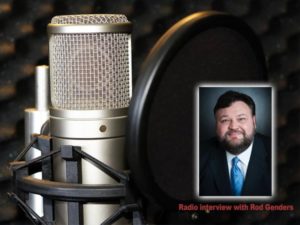 Senior Australian lawyer Rod Genders gives a quick (5 minute) overview of Testamentary Capacity – an increasingly common and important problem as Australia braces for a projected tripling of Alzheimer’s in our rapidly ageing population.
Senior Australian lawyer Rod Genders gives a quick (5 minute) overview of Testamentary Capacity – an increasingly common and important problem as Australia braces for a projected tripling of Alzheimer’s in our rapidly ageing population.
Last night I had to do one of those business chores that just has to be done, but I hate it.
I’ll try not to bore you with too much detail, but basically it involves computer security stuff that is equal parts weird, scary, frustrating and boring.
Much of it makes no intuitive sense, and there are traps for the unwary everywhere. It feels like tap-dancing into a minefield. Wearing a blindfold.
Most Australians aren’t planning for their own long-term care. This is creating a major problem for the next generation, who still have their own kids to look after.
This mirrors what is happening in other western economies such as UK , Canada and USA.
Rising costs and fluctuating economic and health care are the new realities, so more than ever it is important to be proactive before a long-term event happens, to help ensure that you can still take care of your own needs, especially if you are caring for someone else’s well-being.
Here’s one more in our series of articles about Wonky Wills, Pathetic Probates and Disagreeable Deaths.
If you’re twisted like us, you might get a laugh out of some of the strange stuff people do at the end of their days …
#1 Tomas Martinez
67-year-old Tomas Martinez was living on the street in Santa Cruz de le Sierra, Bolivia, when he was approached by police officers who had good news for him. His ex-wife (whom he abandoned years earlier) had died and was leaving him her fortune of $6 million.
Martinez thought the police were there to arrest him for his drug and alcohol related issues, and he fled without hearing what they had to say.



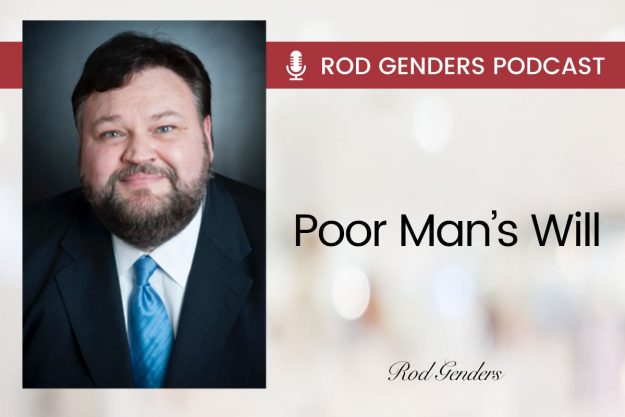




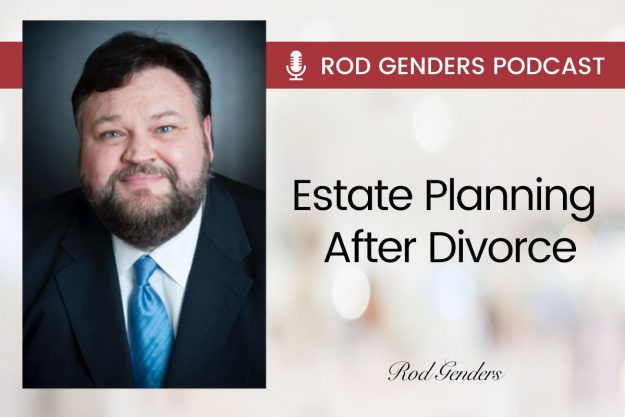

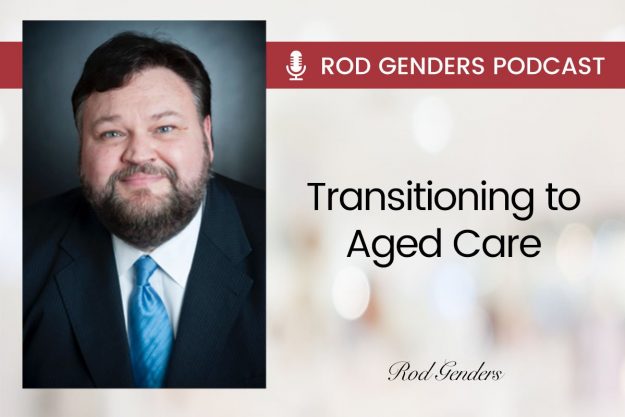

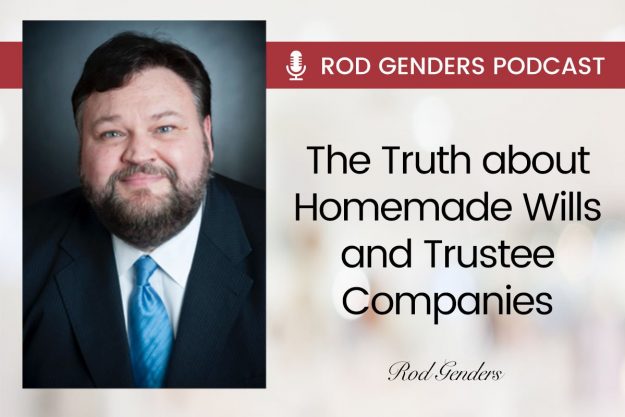
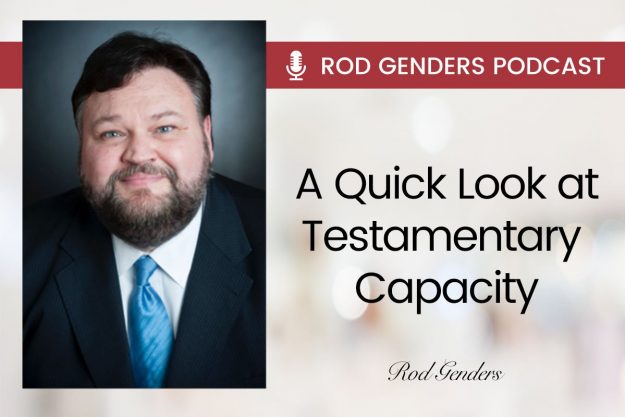
 Senior Australian lawyer Rod Genders gives a quick (5 minute) overview of Testamentary Capacity – an increasingly common and important problem as Australia braces for a projected tripling of Alzheimer’s in our rapidly ageing population.
Senior Australian lawyer Rod Genders gives a quick (5 minute) overview of Testamentary Capacity – an increasingly common and important problem as Australia braces for a projected tripling of Alzheimer’s in our rapidly ageing population.



